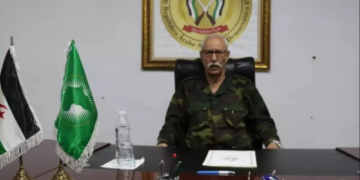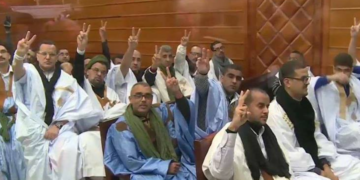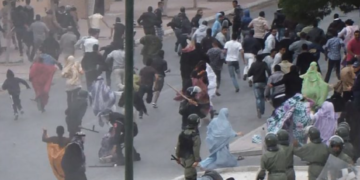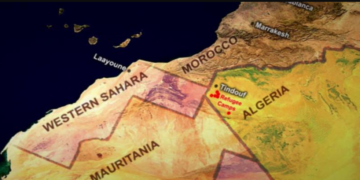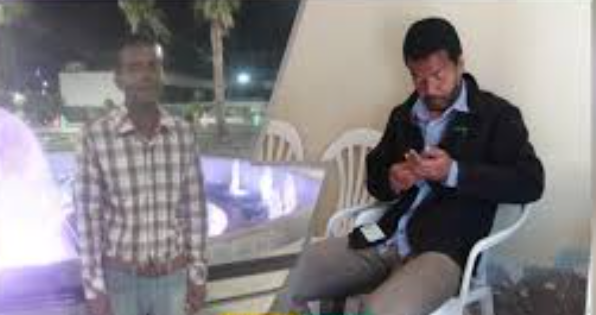In a stark example of the ongoing discrimination and injustice faced by Sahrawis in the occupied territories of Western Sahara, the Moroccan court in occupied Laayoune sentenced Sahrawi prisoner Mohamed Ailal to two months in prison and a fine of 5,000 dirhams. Despite suffering from severe mental disorders for over 20 years, Ailal was accused of involvement in a case of “international drug trafficking.” This trial has sparked widespread controversy due to the numerous procedural violations and questionable legal decisions.
Violation of Basic Rights
Although a report by a medical specialist in psychiatry confirmed that Mohamed Ailal suffers from severe mental health issues, the court dismissed it outright. Furthermore, it rejected the defense’s request for an independent medical examination, raising serious concerns about the basis of the court’s “light sentence” in a case involving serious accusations like international drug trafficking.
This blatant disregard for medical evidence and denial of a proper psychiatric evaluation constitutes a severe violation of international treaties, particularly the United Nations Convention Against Torture, which prohibits any form of mistreatment, including psychological torture, of detainees.
Systematic Discrimination Against Sahrawis
The political and social context surrounding this case highlights the systematic discrimination endured by Sahrawis in the occupied territories of Western Sahara. This unjust ruling is yet another manifestation of such bias, where authorities fail to consider the mental health conditions of detainees and disregard international laws aimed at protecting vulnerable individuals.
Procedural Violations in the Case
From the outset, this case has been marred by several glaring violations:
- Unlawful Interrogation: Mohamed Ailal was interrogated by law enforcement without the presence of a psychiatrist, a clear breach of legal standards.
- Psychological Torture and Mistreatment: Ailal endured inhumane treatment that contravenes international conventions.
- Rejection of Medical Evidence: The court dismissed a professional medical report and refused to order an independent psychiatric evaluation, undermining the defense’s case.
Underlying Motives and Questions
Observers believe that this sentence is a calculated move to save face for the judiciary, following widespread solidarity campaigns advocating for Ailal’s release. Instead of addressing the violations and ensuring justice, the court opted for a superficial ruling that masks deeper flaws within the system.
- Was the light sentence issued to divert attention from the procedural violations?
- Did the authorities reject the solidarity campaign to assert control over judicial decisions?
Call for International Solidarity and Accountability
This case highlights the urgent need for an independent international investigation into the practices of the occupying authorities in Western Sahara.
- The global community must pressure Morocco to uphold the human rights of Sahrawi detainees and ensure fair trials.
- Advocates and organizations must amplify solidarity campaigns for Mohamed Ailal and others suffering under oppressive conditions.
The refusal to acknowledge medical evidence and the denial of fundamental rights clearly demonstrate that the judiciary in the occupied territories operates with a political agenda, prioritizing oppression over justice.
- Mohamed Ailal.
- Unfair trials in Western Sahara.
- Human rights violations.
- Judicial bias against Sahrawis.
- Mental health rights in detention.
- International drug trafficking case.
- Psychological torture.
- United Nations Convention Against Torture.

